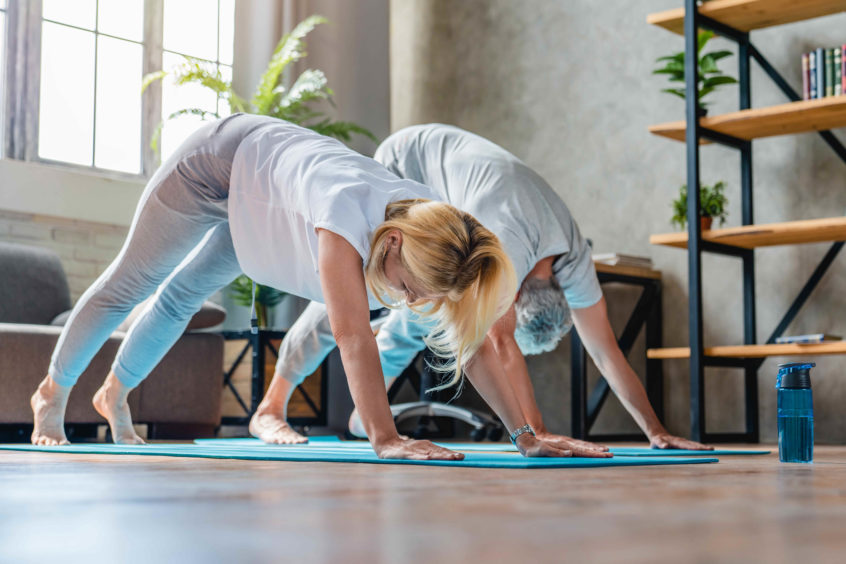Healthy Aging Month is all about making sure we’re able to make the most of our lives as we get older, by taking proper care of our mental and physical health.
As we age, our quality of life largely depends on the lifestyle choices we make – and the effect these have on our mind and body. To ensure our quality of living is just as good (if not better) than when we were young, we have to make our health a priority.
With this in mind, here are 4 lifestyle factors to focus on to allow you to live your life to the fullest.
Exercise.
Theoretically, everyone knows that being active is important, but it becomes increasingly so in our middle age and senior years.
Keeping active reduces our risk of contracting age-linked illnesses such as heart disease, diabetes, strokes and heart attacks. Not to mention, it helps to keep our weight down and our fitness level up, so we’re less physically limited in what we do as we get older.
Even taking a long brisk walk every day is great for your health, if you can’t bring yourself to engage in more intense cardio, such as running or swimming.
What’s more, exercise such as yoga can help to improve balance – which tends to worsen as we age – build muscle strength and has a host of mental benefits, too.
Nutrition.
Another other piece of the puzzle, allowing us to manage our weight and reduce our risk of a multitude of diseases – often triggered by vitamin or mineral deficiencies, or by eating too much of an unhealthy food group – is optimizing our nutrition.
So, adhering to a diet full of fruit and vegetables (at least 5 portions a day, though you should always aim for more) and low in saturated fats, such as those found in red meat, is essential.
Taking supplements is also a good idea to ward off deficiencies and the age-related issues that come with them. For example, as we get older our eye health can degenerate into a condition known as age-related macular degeneration. Taking supplements such as Viteyes AREDS 2 or AREDS 2 zinc-free can help support macular health.
Mental self-care.
Not only is looking after our mental health essential to our wellbeing, and to our sense of contentedness with life as we grow older, but it’s also vital for our physical health, since mental issues often manifest as physical problems.
With this in mind, it’s important to go to talk to someone close to your or seek out a therapist if you’re struggling through a difficult time, or even if you just don’t feel like yourself and can’t put your finger on why.
Another crucial part of practicing mental self-care is staying social and keeping your support network strong.
The quality of our relationships with others – including those with our partner, children, family, and friends – have a huge influence on our happiness, how supported we feel (and, therefore, how well we’re able to deal with times of difficulty) and by extension, our physical health.
Travel.
The saying Variety is the Spice of Life is a cliché for a reason.
New experiences – though they can seem few and far between when we get to a certain age – are essential to our quality of life. Again, this has a knock-on effect on our mental and physical health.
Traveling introduces us to new cultures, experiences, food, and people – giving us a ton of social benefits which, as humans, are essential to our wellbeing – and though some of us might be tempted to slow down and spend more time at home as we enter our later years, this may actually be the time to do more and make the most of what life has to offer.
So, to prioritize your health – and to enhance your quality of life – make some improvements to your exercise regime, nutrition (making sure to take supplements) and mental health self-care habits, as well as seek new experiences by traveling this healthy aging month.
